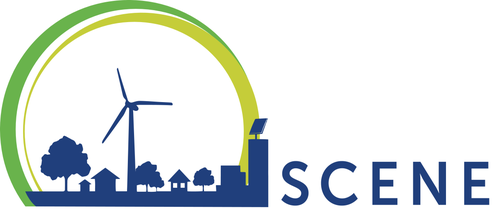We have just returned from Adamawa, Central Northern Cameroon, where we had the opportunity to see first-hand the challenges and opportunities of domestic biogas as a means of providing clean and low-cost energy to remote, off-grid and low income areas. The project, led by SNV and Wageningen University, is an ambitious roll-out programme involving cost-shared construction of one thousand 6m3 biogas installations for cooking purposes, the target group comprising largely Fulani women. Our main objective was to assess the options for a real-time monitoring and evaluation platform, where both research and local SNV staff can easily and remotely update a central database on the status of individual households as their clients make their way from expressing interest in biogas to committing funds, payment, construction and operation.
What was most interesting about this visit was to see the motivations for people to engage in renewable energy projects, and the barriers to ownership of renewable energy assets, compared to those in Europe. As one of the poorest states in Cameroon, there is little room for ideals in Adamawa and stated motivations are as one would expect primarily geared towards fundamental needs - energy access, health and monetary benefits. What is so striking, coming from an individualistic society in which we like to think our decisions are our own rather than a function of others around us, is the full extent to which socio-cultural conventions and dynamics affect an individual’s desire and ability to participate in projects like this. Life seems inherently more social, each decision subject to the scrutiny of local customs, norms and closely reinforced by family, neighbours and the village chief, with it seems fundamentally different ideologies and notions of what is the ‘self’. The correlation between the prevalence of market institutions and corrosion of social institutions has been explored in case studies elsewhere, such as in Jean Ensminger’s study of the Orna in Kenya. It makes me wonder whether rational choice -theoretic economics and its resulting policies have become a self-fulfilling prophecy in the Western world, where we are surely a great deal more homo economicus than here in Adamawa!
It took decades (of ignoring sociologists and anthropologists), but even economists have come as far as to realise that economic activity is embedded in socio-cultural institutions, which may be linked to complementary formal and informal institutions, and that these institutions are a reflection of value frameworks and take centuries to change. Seeing just how powerful these social institutions can be, I would advise anyone in the business of demand-driven technology deployment to spend a couple of weeks with their target group in advance of the project to understand the cognitive and cultural frames within which new technology is to be used and understood. From this understanding, you are likely to revise your business model to one in which end users will have greater influence in the design, are likely to feel a greater sense of ownership, which is more likely to generate durable and self-sustaining outcomes (all this assuming that the technology makes sense and is appropriate). While we have known this for some time, feasibility analyses still too often focus purely on resource potential and financial viability. If you are interested, Ernesto Sirolli sums up the issue of ownership and effective development projects better than I.
Secondly, despite this rich and prominent set of socio-cultural institutions, there is no trust on which to erect the long-term contracts typically required for capital intensive investments. In Adamawa you pay in daily installments after you have checked that the job was done properly, because of high risk of theft or fraud, with no way to enforce contracts legally. This rules out simple design-build delivery approaches, complicating the payment process and massively increasing transaction costs, ultimately jeopardising the long-term viability of projects. The average person has a social circle of about fifty people, and within this group of people trust may be high. But all evidence suggests that repeated exposure to market institutions that are backed by effective formal institutions effectively teaches people to trust outsiders, enabling risky transactions with a very large network of complete strangers (along with economies of scale, job diversity etc. etc.).
It is difficult for projects to compensate for lack of formal institutions, but you can do a lot by identifying key risks and developing incentive systems that build on the informal institutions already there. The aim is to incentivise people to behave in a trustworthy manner, as well as increase the general belief that your actors are trustworthy. This concept has been applied in collective microfinance institutions, or groups advocating women’s rights under Sharia law, where unleashing the power of peer pressure has proven to serve effectively as an incentivisation strategy to ensure repayment and prevent violence against women.
There it is; markets corrode local social institutions but enable you to trust all the strangers of the world and to undertake bigger investments in productive assets. The SNV Biogas Project runs until 2015, and hopefully our M&E platform will contribute to monitoring and responding to developments as the project gears towards leaving behind a biogas industry that can be sustained by local markets in the long term.
Anna Harnmeijer
26 June 2014
Anna is a Research Associate at Scene Consulting

